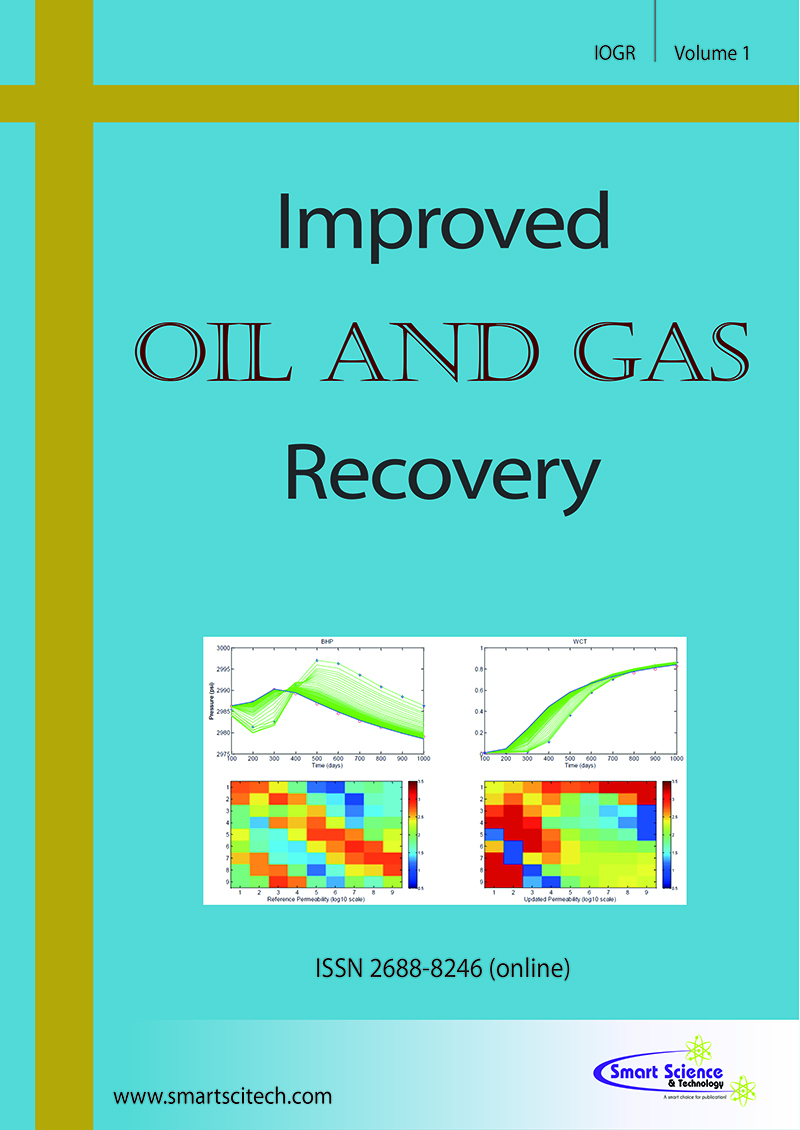Effect of Hydrate on the Deliverability of Underground Gas Storage (UGS) Reservoir
DOI: 10.14800/IOGR.1313
Abstract
The study investigates the impact of hydrates on the deliverability of underground gas storage (UGS) reservoirs, specifically focusing on depleted wells. Utilizing MATLAB (2024) for numerical problem coding and Microsoft Office Excel (2013) for data collation and plotting, the research simulates the effects of hydrate formation within a gas well. Data was sourced from open literature and includes parameters such as gas gravity, tubing dimensions, pressures, temperatures, and constants for the inflow performance relationship (IPR) model. key metrics, such as gas gravity, tubing inside diameter, and reservoir pressure, were used to model the gas storage well's behavior. The study varied the hydrate film thickness from 0.0 to 1.0 inch to assess its influence on gas deliverability. The governing equations for IPR and tubing performance relationship (TPR) were employed, integrating the hydrate film's impact by modifying the inner diameter of the tubing. The IPR equation was rearranged to compute the flowing bottom-hole pressure as a function of flow rate. The TPR equation was adjusted to account for hydrate thickness, leading to a new model that predicts gas deliverability under varying hydrate conditions. The solution procedure involved computing average temperature and pressure, critical temperature and pressure, pseudo-reduced temperature and pressure, and average compressibility factor. These computations facilitated the generation of gas flow rates and the plotting of IPR and TPR curves for different hydrate thicknesses. Results indicated that as hydrate film thickness increases, the TPR curve shifts from horizontal to vertical, signifying reduced gas flow rates and increased bottom-hole pressures. A hydrate thickness of 0.0 inches resulted in a flow rate of 1470 Mscf/day, while a thickness of 1.0 inch reduced the flow rate to 20 Mscf/day. This reduction in flow rate and increase in bottom-hole pressure illustrate the adverse effects of hydrate deposition on gas well deliverability. In conclusion, the presence of hydrates significantly decreases the deliverability of gas storage wells. To mitigate these effects, the study recommends the use of hydrate inhibitors and insulation of pipelines to prevent heat loss, thereby avoiding hydrate formation.
Downloads
Published
How to Cite
Issue
Section
License
Copyright (c) 2024 The Author(s)

This work is licensed under a Creative Commons Attribution 4.0 International License.












